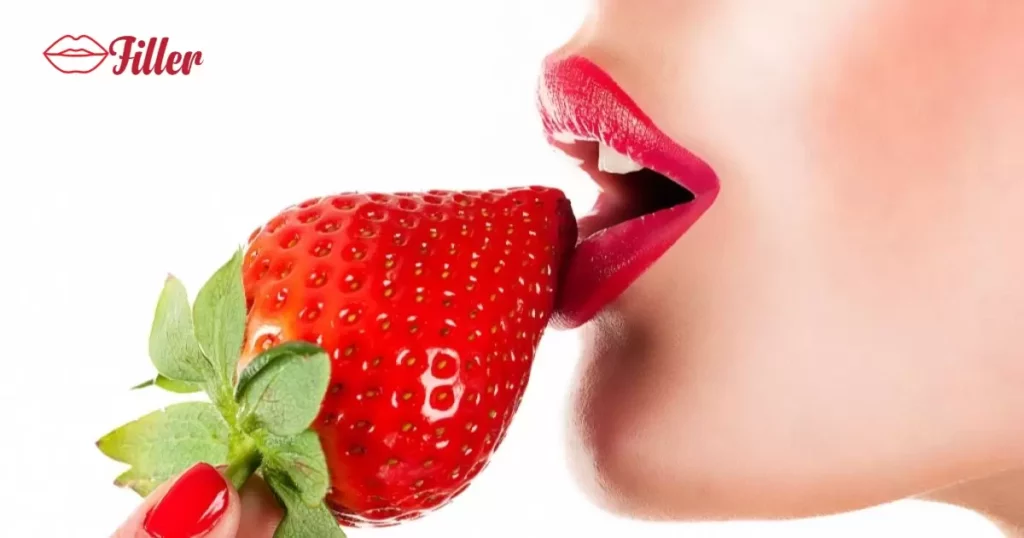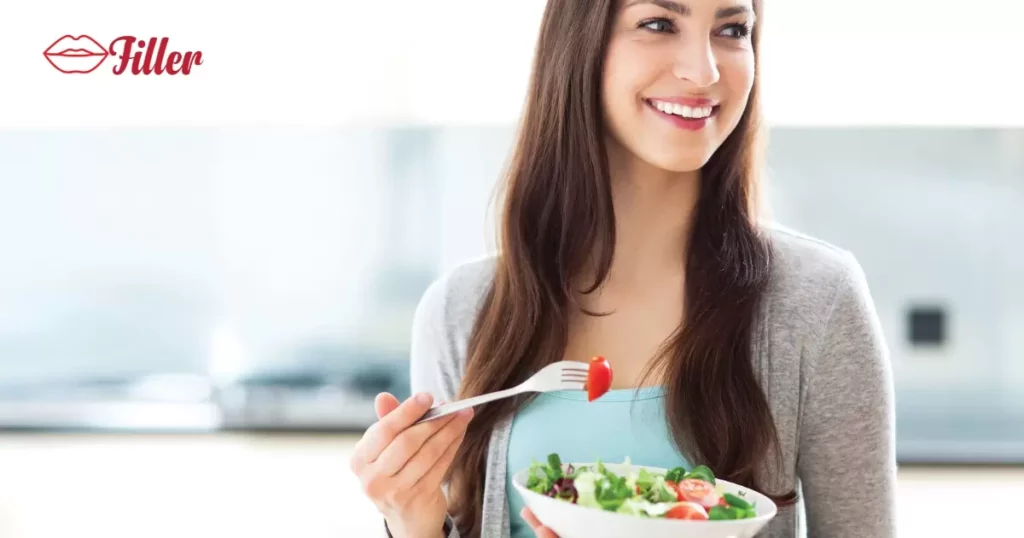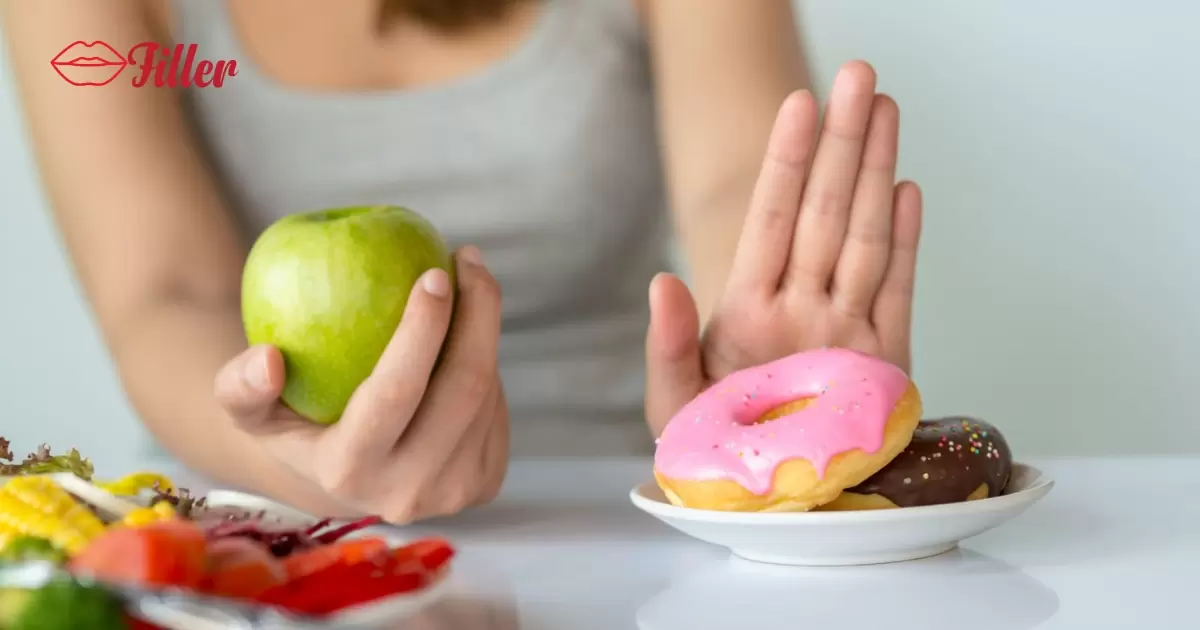Eating after lip fillers refers to the specific dietary choices and precautions individuals should follow after undergoing a lip augmentation procedure. It involves avoiding certain foods and beverages to minimize swelling and discomfort while focusing on soft, nourishing options that promote healing and maintain the results of the treatment.
Wondering what to eat after lip fillers? Your post-treatment diet plays a crucial role in how quickly you recover and maintain those plump, perfect lips. We’ve got you covered with the dos and don’ts of lip-friendly foods, making your journey to luscious lips as smooth as can be.
In the world of lip fillers, the right diet can make all the difference. The foods you choose post-treatment can help reduce swelling, speed up recovery, and ensure your results last longer. So, let’s delve into the details of what you should be munching on after those lip fillers to keep your smile looking its best.
Immediate Post-Treatment Considerations
Right after your lip filler treatment, immediate post-treatment considerations become crucial. Lip filler aftercare begins with a 24-hour period where questions like “can you eat after lip filler” arise. During this time, it’s essential to avoid eating or drinking, sticking to water only, and using ice packs to manage any swelling.
As you navigate the initial recovery phase of eating after lip filler, soft, hydrating foods become your best friends. Your diet should include soothing options like smoothies and soups to ensure comfort and promote healing.
Foods to Avoid in the First 48 Hours
you need to be cautious about your dietary choices to support a smooth recovery and ensure the longevity of your results. Here are some specific foods and beverages to stay away from during the first 48 hours after your lip fillers:
Spicy and Acidic Foods: These can potentially irritate your lips and lead to discomfort or swelling.
Hot and Hard Foods: Foods that are too hot or require extensive chewing can exert pressure on your lips, possibly causing complications.
Alcohol and Caffeine: Both alcohol and caffeine can contribute to dehydration, which may slow down the healing process and impact the quality of your results.
It’s important to avoid these items in your diet immediately after the procedure to promote a comfortable and successful recovery. Make sure not to drink coffee after lip fillers during this period.
Lip-Friendly Foods and Beverages

Choosing lip-friendly foods and beverages is key to a comfortable recovery after lip fillers. In addition to the previously mentioned options, consider incorporating foods rich in vitamins and antioxidants like strawberries and blueberries.
| Food and Beverage | Description | Benefits |
| Soft Fruits | Applesauce, ripe bananas, and berries | Easy to eat, soothing, and hydrating |
| Chilled Water | Cool, refreshing, and aids hydration | Minimizes lip swelling |
| Smoothies | Blended fruits and yogurt or almond milk | Easy to consume, nutrient-rich |
| Soups | Broth-based or pureed soups | Requires minimal chewing |
| Herbal Teas | Peppermint, chamomile, or ginger tea | Hydration and anti-inflammatory |
| Vitamin C-Rich Foods | Oranges, strawberries, and bell peppers | Supports healing and reduces swelling |
These lip-friendly foods and beverages can make your post-lip filler recovery more comfortable and promote a faster healing process.
Nutrients that Promote Healing
When it comes to nutrients that promote healing, focus on essentials like Vitamin C from fruits, antioxidants for reducing inflammation, and proteins that aid in collagen production. Incorporating omega-3 fatty acids from sources like salmon can also support your lip filler recovery.
Vitamin C and Antioxidants
Vitamin C, found in fruits like oranges and strawberries, is renowned for its role in collagen production, which is vital for healing and maintaining lip filler results. Antioxidant-rich foods such as berries help reduce inflammation, ensuring a smoother recovery process.
Protein and Collagen Production
Proteins from sources like lean meats and eggs are crucial for collagen synthesis. Collagen is essential for the structural integrity of your lips and helps with the long-term effectiveness of lip filler treatments. Including protein in your diet can boost healing and support your lip health.
Long-Term Diet Considerations
Long-term diet considerations play a significant role in maintaining the results of your lip filler treatment. Staying hydrated by drinking plenty of water is essential, as it keeps your lips plump and healthy.
Incorporating a lip care regimen that includes moisturizing lip balms can help prevent dryness and maintain your lip’s softness and beauty. Lastly, don’t forget to schedule regular follow-up appointments with your provider to ensure your lip fillers continue to look their best over time.
Tips for Meal Planning and Preparation

When creating your meals, focus on incorporating soft, nourishing foods and lip-healthy ingredients. These steps can help you plan and prepare meals with ease:
- Select soft, easy-to-chew foods like yogurt, mashed potatoes, and pureed vegetables.
- Opt for smoothies and soups, as they require minimal lip movement while providing necessary nutrients.
- Include hydrating beverages like herbal teas or water with lemon to prevent dehydration.
- Use blenders and food processors to make your meals more manageable.
- Pay attention to portion sizes, ensuring you don’t overeat or strain your lips.
- Be mindful while eating, savoring each bite to prevent accidental lip stress.
Frequently Asked Questions
What is the best thing to eat after lip fillers?
The best thing to eat after lip fillers are soft, cool foods like yogurt, mashed potatoes, and smoothies, which are gentle on your lips.
How soon can I eat after lip fillers?
You can start eating or drinking right after lip fillers, but it’s best to stick to soft, cool foods and hydrating beverages for the first 24 hours.
What should I avoid the day of lip fillers?
On the day of lip fillers, avoid spicy and acidic foods, hot or hard items that require excessive chewing, and alcohol or caffeine to prevent irritation and swelling.
Conclusion
In conclusion, what you choose to eat after lip filler injections greatly impacts your recovery and results. By following the guidelines for immediate post-treatment care and incorporating lip-friendly foods, you can ensure a comfortable healing process.
Pay attention to long-term diet considerations, stay hydrated, and maintain a lip care regimen to keep your lips looking their best. Remember, your post-lip filler diet is a key ingredient for success.











